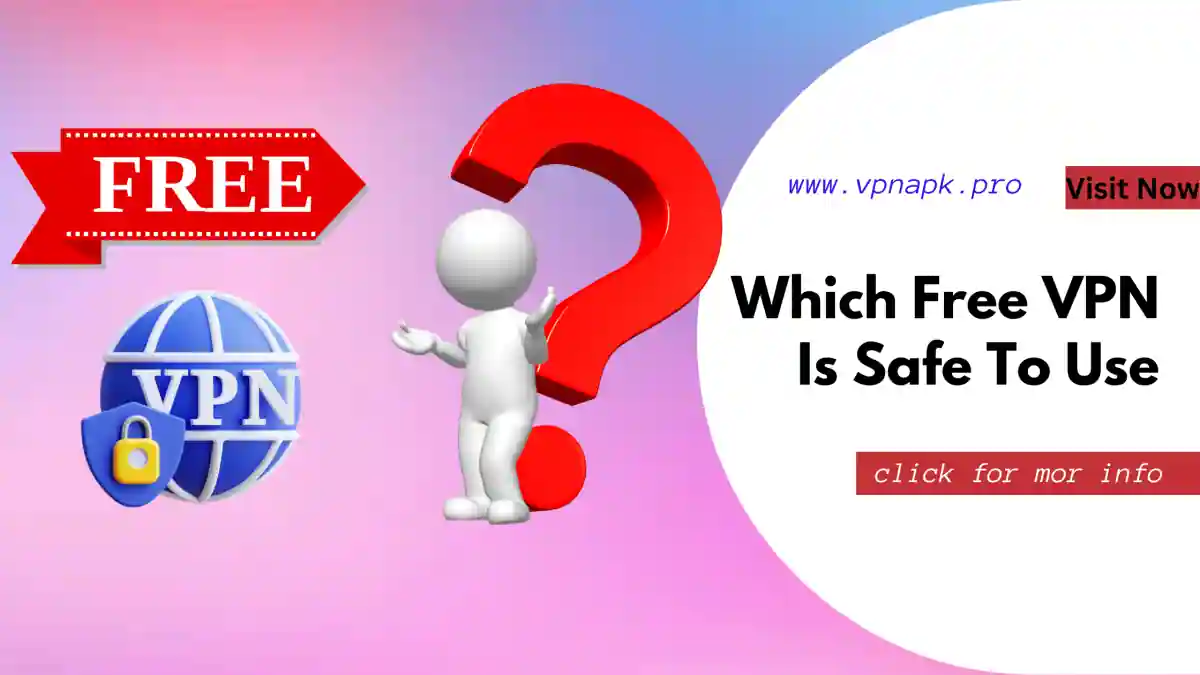In an age where online privacy and security are paramount, Virtual Private Networks (VPNs) have become essential tools for safeguarding your digital life. Whether it’s protecting your personal data from prying eyes or accessing geo-restricted content, VPNs play a crucial role in ensuring your online activities remain private and secure. But when it comes to free VPNs, the question that often arises is, “Which free VPN is safe to use?“
In this article, we’ll delve into the world of free VPNs, discussing their safety, potential risks, and highlighting some reputable options that strike a balance between security and cost.
Why Safety Matters with Free VPNs
Before we dive into the safety considerations of free VPNs, it’s vital to understand why using a safe VPN is essential:
1. Privacy Protection
A secure VPN encrypts your internet connection, shielding your online activities from hackers, government surveillance, and even your internet service provider (ISP). It ensures that your data remains private and out of reach from prying eyes.
2. Access to Restricted Content
VPNs can help you bypass geo-restrictions, granting you access to websites and content that might be blocked in your region. Whether you want to stream content from other countries or access restricted websites, a VPN can be your ticket to the open internet.
3. Security on Public Wi-Fi
Public Wi-Fi networks, while convenient, are often vulnerable to cyberattacks. Using a VPN on your device, be it a laptop or smartphone, ensures that your data remains protected even when connected to unsecured networks.
4. Bypassing Censorship
In regions with strict internet censorship, a safe VPN allows you to bypass such restrictions and access the information and websites you need without fear of censorship.
Challenges with Free VPNs
While the allure of a free VPN is undeniable, it’s crucial to recognize that not all free VPNs are created equal. Some free VPN providers may compromise your online security and privacy in various ways:
1. Data Logging
Certain free VPNs may log your online activities or collect data, which can pose significant privacy concerns. Always scrutinize a VPN’s privacy policy to ensure it adheres to a strict no-logs policy.
2. Limited Security Features
Free VPNs often offer limited security features compared to their paid counterparts. This can leave your connection vulnerable to various threats.
3. Server Limitations
Many free VPNs have a limited number of server locations, potentially impacting your browsing experience and connection speed.
4. Advertisements and Pop-Ups
To support their free service, some VPNs display advertisements or pop-ups. While not inherently a security issue, these can be intrusive and affect your overall user experience.
Choosing a Safe Free VPN
So, the big question remains: “Which free VPN is safe to use?” Here are some reputable free VPN options that prioritize user privacy and security:
1. Windscribe
- Safety Features: Strong encryption, strict no-logs policy.
- Data Allowance: 10GB per month.
- Server Locations: Multiple.
Windscribe is renowned for its robust privacy features, including a clear no-logs policy. It offers a generous 10GB of data per month, making it suitable for moderate VPN users.
2. ProtonVPN
- Safety Features: Secure encryption, strict no-logs policy.
- Data Allowance: Unlimited on the free plan.
- Server Locations: Multiple.
ProtonVPN is committed to user privacy and offers unlimited data on its free plan. It has a strong reputation for security and privacy.
3. Tunnel Bear
- Safety Features: VigilantBear (kill switch), strict no-logs policy.
- Data Allowance: Limited, but can be increased through referrals.
- Server Locations: Limited but expanding.
TunnelBear stands out for its user-friendly approach and a strong commitment to privacy. While it has a limited server network, it’s trusted for its security.
- Safety Features: Strong encryption, minimal connection logs.
- Data Allowance: 500MB per day.
- Server Locations: Multiple.
Hotspot Shield offers strong encryption and a daily data allowance. It’s user-friendly and supported by ads in the free version.
5. Betternet
- Safety Features: Minimal logs kept.
- Data Allowance: Unlimited.
- Server Locations: Limited.
Betternet is straightforward to set up and use, making it a hassle-free option for basic VPN protection. It offers unlimited data and requires no registration.
Conclusion: Safe and Free VPNs Exist
While the safety of free VPNs can vary, there are reputable options available that prioritize your privacy and security. When choosing a free VPN, always read and understand the provider’s privacy policy and terms of service to ensure they align with your privacy and security needs. With the right free VPN, you can enjoy a safer and more secure online experience without breaking the bank.

